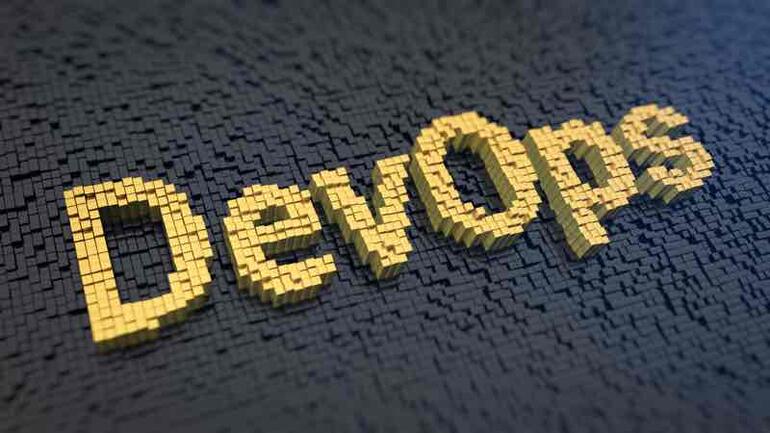DevOps Institute: It’s time to walk the walk and build a learning culture

The institute’s third annual upskilling report finds that 70% of respondents want ongoing skills development in tandem with the continued adoption of DevOps.

Image: TimArbaev/Getty Images/iStockphoto
Building a continuous learning culture is of key importance, and one of the top DevOps ways of working for 70% of respondents, according to the DevOps Institute’s third annual upskilling report. Additionally, 45% leaned toward a safety culture, the report said.
While 39% of IT teams are still struggling with a defined and systematic upskilling program, 52% of organizations already have a formally designed upskilling program or are currently developing one.
The newly released “Upskilling 2021: Enterprise DevOps Skills Report” examined DevOps hiring trends and top skills around the globe within enterprise IT organizations of all sizes.
SEE: Top 5 programming languages for systems admins to learn (free PDF) (TechRepublic)
“The building of a learning culture can only happen if there is a no-blaming or shaming of problems and if problems are made visible so that everyone can learn and profit from the problems, solutions and knowledge,” the report said.
Hiring for DevOps initiatives is high
COVID-19 has not stopped the hiring of DevOps roles. Sixty percent of organizations are recruiting now or in the future, the report said. DevOps engineers are the most in-demand job title this year, representing 53% of recently recruited DevOps positions, according to the report.
Another finding was that during the pandemic, 38% of respondents said their DevOps teams have stayed the same, while 23% said they expanded, according to the report. When new team members are hired, almost half of the respondents (49%) said they first look for talent internally. If there is no qualified individual they look externally.
Further, 25% said they prefer to hire internally and then train the individual, given the IT skills gap, specifically in DevOps, the report said.
“DevOps humans remained in demand, despite a global pandemic that upended our ways of life and business,” said Jayne Groll, CEO of DevOps Institute, in a statement. “This is a testament to the importance and value of DevOps transformations at companies across industries and around the globe.”
The report’s findings provide clarity into the evolution of “DevOps humans” and how IT organizations will shape their talent-based structures in 2021 and beyond, Groll added.
Other key findings include:
- Capabilities and skill development must go hand in hand. DevOps teams must assess which critical capabilities they can perform or not, across key areas, but capabilities must be supported with skilled DevOps humans. The essential combination of skills for a successful DevOps human are across the automation, human, technical, functional, process and framework knowledge skill domain categories.
- Pressure continues to force old IT operating models to change. As new forms of hybrid computing are on the rise, this gives application developers more freedom to choose tools and programming languages. As this increases, IT operations teams not yet practicing DevOps feel more pressure to embrace DevOps.
- Value stream management (VSM) skills are seen by 39% of respondents as a must-have skill. DevOps and Agile practices have been adopted to innovate and create more iterative approaches for software development and delivery. However, the value must come through the customer lens. VSM helps by understanding and examining value streams of software being delivered. This enables teams to make complex processes visible and provides the ability to pivot towards further value improvement.
- The adoption of site reliability engineering (SRE) as an operating model is higher in 2021. Twenty-two percent of respondents cited SRE as a model they need to continue automation in 2021 compared to 15% in the previous year. Forty-seven percent of the survey respondents voted SRE skills as a must-have skill in the process and framework skill domain this year compared to 28% in the previous year’s survey.
- DevSecOps is a key trend. Security is integral to protect the business and enforce internal and external policies of the company. DevSecOps makes security an equal consideration alongside development and operations. According to survey participants, DevSecOps achieved a must-have percentage vote of 56% in the automation tool category.
- New models such as DataOps and ModelOps have emerged. DataOps was voted by 27% of respondents as a must-have skill domain in the automation tool skill domain, whereas ModelOps received 22%. These new models are shaping the ongoing iterations of DevOps operating models.
“The future of DevOps at any organization is dependent upon the breadth and depth of capabilities and the supporting skills of the team members and within the team,” said DevOps Institute’s Chief Research and Content Officer, Eveline Oehrlich, who led the research and data analysis, in a statement. “A successful DevOps journey—actually, any journey—has the DNA of a learning organization, which means there is a commitment of continuous learning across all layers and players.
“For everyone in IT, this is an exciting time to unlock your power, abilities and skills to accelerate your DevOps journey and that of your team and company,” Oehrlich said. “DevOps human readiness and organizational learning must take on new importance now and in this next normal.”
Data in the 2021 report is based on research gathered from an open survey of more than 2,000 respondents between August and December 2020, from organizations of all sizes around the world, the institute said.


